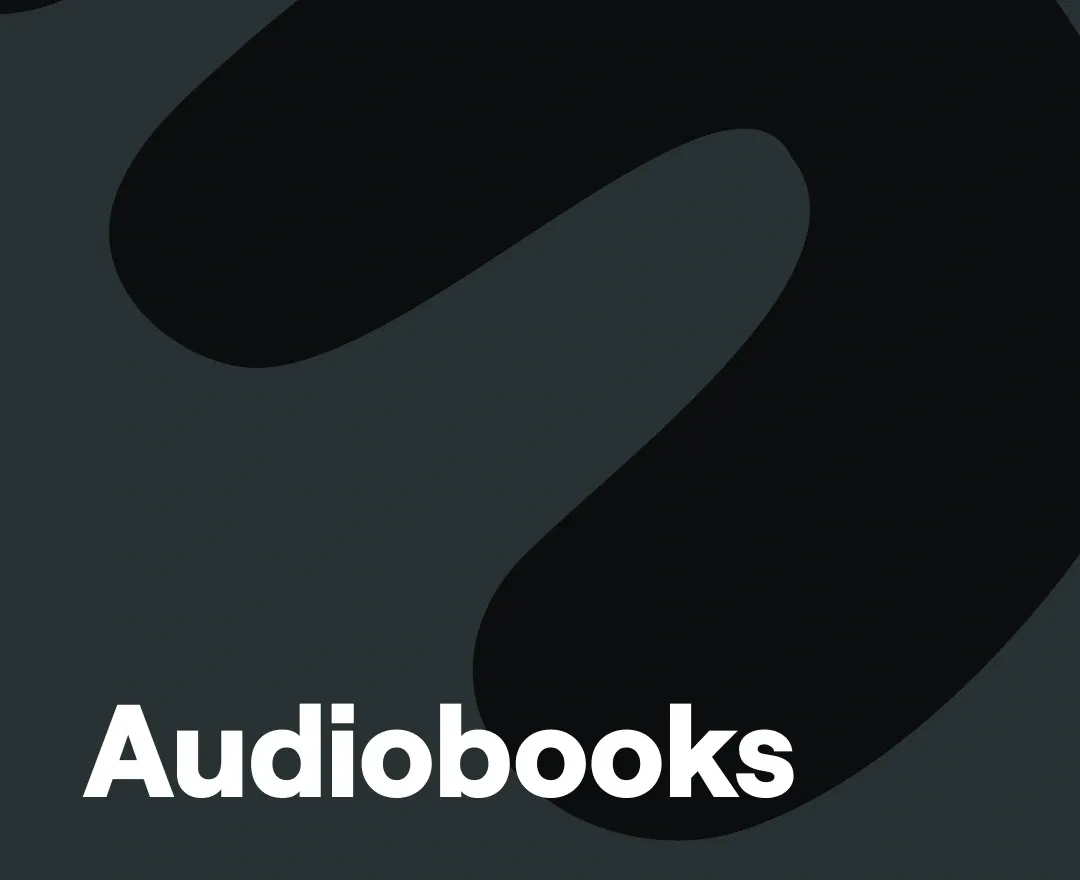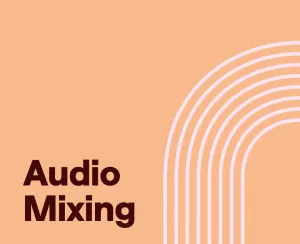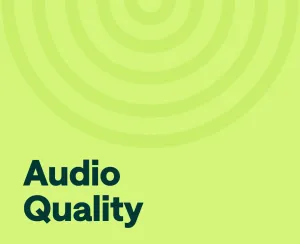Audiobooks are gaining popularity, and if you, as an author, haven't embraced this medium, you're missing out on a substantial audience eager to engage with your narrative.
Creating your very own audiobook is like writing a captivating story – it requires dedication, creativity, and the right tools. In this comprehensive guide, we'll walk you through the entire process of audiobook creation, presenting it as a story in ten chapters. Each chapter thoroughly covers a new aspect of this process, bringing you closer to your goal of producing a high-quality audiobook that captivates listeners.
Step 1: Prepare the source material
Before you can start recording your audiobook, you’ll need to make sure the material you’ll be recording is ready to go and consolidated into a single document. This single document will serve as the script that you'll read while recording your audiobook. This step not only streamlines the recording process but also ensures a coherent narrative flow.
Review and Refine Your Manuscript
While reviewing your manuscript, it's essential to remove elements that won't translate well when narrated. Audiobooks are an auditory experience, so hyperlinks, captions, and descriptions of visual illustrations are irrelevant and should be omitted. Also make sure that any sentences that contain a call to action like “click here” are reworked or removed entirely.
Ensure Clarity and Natural Flow
Once you've compiled your script, take the time to listen to it before recording. Ensure that the script makes sense when read aloud, and eliminate any confusing or convoluted passages. If you encounter difficulties or awkwardness while reading certain parts, consider rewording or rewriting them to sound as natural as possible.
Step 2: Choose a recording strategy
In the process of creating your audiobook, one of the critical decisions you'll need to make is how it should be recorded and who will be the voice behind it. This chapter explores various recording strategies, each with its own advantages and considerations, to help you determine the approach that aligns best with your audiobook project.
Here are your primary options:
Partner with an Audiobook Producer
In the realm of audiobook creation, partnering with an audiobook producer is an appealing but potentially costly choice. This approach offers a hands-off experience, as a seasoned professional takes charge of the technical aspects, ensuring that the audio quality remains top-notch. It can be particularly advantageous if you're venturing into audiobook creation for the first time and wish to navigate any potential technical hurdles with ease. To find an audiobook producer, platforms like Fiverr and Upwork provide a wealth of resources. A simple search for "audiobooks" on these platforms can open doors to a diverse pool of audio engineers, editors, and producers. Additionally, explore the "mixing and mastering" category on platforms like Fiverr to identify experts who can fine-tune your audiobook's audio quality to perfection.
Hire a Professional Narrator
Another option is to hire a professional narrator to record your audiobook. Contrary to common misconceptions, this approach can often be both cost-effective and efficient. Many authors discover that the expense of hiring a skilled narrator is significantly lower than attempting a DIY recording, primarily because you sidestep the need to invest time and money in researching and purchasing recording equipment. While fiction audiobooks might incur higher costs due to acting requirements, this method remains popular. To hire a narrator, start by creating a detailed proposal that outlines the scope of work and terms. Following that, prepare a retail audio sample, which could be a chapter or highlights from your audiobook, to attract potential narrators and engage your future readers on platforms like Amazon. Sites like Voices or Upwork, or even a simple Google search can connect you with experienced narrators.
Record It Yourself
If you're closely connected to your work and desire a unique, personal touch in your audiobook, consider narrating it yourself at home. This approach can be particularly fitting for personal stories, family histories, or nonfiction content, where your genuine voice adds a layer of authenticity. If you're already a podcaster or music producer, chances are you possess the necessary recording equipment. However, be prepared for the commitment of time, as self-recorded audiobooks can be more time-consuming to complete. In the upcoming chapters, we'll get into the details of this recording strategy, laying out all the equipment and issues you’ll be dealing with.
Step 3: Select your audiobook recording software
The same great features that make Podcastle a top software choice for podcast creation make it perfect for recording audiobooks. Easily the most compelling case for using Podcastle is that it consolidates all the essential tools you need for audiobook creation into a single, user-friendly platform. With Podcastle, you can record, edit, enhance, host, and export your audiobook project in one place, eliminating the need to juggle between different software applications. This streamlined approach not only saves you time but also ensures a cohesive and professional audiobook production.
When you use Podcastle you get:
Studio-Quality Audio
Podcastle is engineered to deliver studio-quality audio, ensuring that your audiobook's sound is crisp, clear, and immersive. Whether you're a seasoned audiobook producer or venturing into the world of audio storytelling for the first time, you'll appreciate the professional-grade audio output that Podcastle consistently delivers.
Separate Track Recordings
Are you planning on using multiple narrators, each recording remotely from their homes? Not a problem. Podcastle records each participant on separate tracks, all recorded locally. This distinction ensures that your audiobook achieves top-tier quality by avoiding the pitfalls of cross-track interference and maintaining pristine audio throughout the recording process, no matter what happens to anyone’s internet connection.
Powerful AI Assistance
Podcastle integrates powerful artificial intelligence (AI) that can transform your audiobook creation experience. These AI capabilities include:
Text-to-Speech Generation: Easily convert text content into lifelike speech, opening up new possibilities for narration and dialogue.
Automatic Transcription: Streamline the transcription process, making it effortless to convert spoken words into written text.
1-Click Audio Enhancement Tools: Achieve audio perfection effortlessly with a suite of one-click audio enhancement tools, enhancing sound quality and removing unwanted noise.
ACX Compatibility for Seamless Submission
Submitting your audiobook to platforms like ACX requires adherence to specific audio standards. Podcastle is designed to effortlessly meet ACX submission requirements with features such as:
MP3 Downloads Up to 320kbps: Ensure your audiobook meets the highest quality audio standards, delivering a premium listening experience to your audience.
44.1 kHz Constant Bit Rate (CBR): Maintain the industry-standard audio format to ensure compatibility with various playback devices.
AI-Powered Background Noise Removal: Eliminate background noise and distractions, resulting in crystal-clear audio.
Auto-Leveling: Podcastle's auto-leveling feature ensures consistent audio volume, preventing jarring volume fluctuations for a smooth listening experience.
Step 4: Set up your audiobook recording space
Creating an exceptional audiobook requires more than just outstanding content and the right software. Equally crucial is the environment in which you record. In this chapter, we'll explore the essentials of setting up your recording space, ensuring that it is optimized for top-quality audiobook production.
Your Equipment: Crafting Your Audiobook Toolkit
Choosing the Right Microphone: The microphone you select plays a pivotal role in capturing your voice with clarity and fidelity. It's essential to choose one that not only suits your voice but also aligns with your budget. We recommend a decent USB mic like the Blue Snowball, or the Samson Meteor.
Headphones and Accessories: Don't overlook the importance of headphones in your recording setup. Quality headphones help you monitor your audio in real-time, ensuring that you capture every nuance (we recommend the Sennheiser HD 280 Pro). Additionally, explore other accessories like pop filters, microphone stands that can also hold the device that displays your script, and shock mounts to enhance your recording experience.
Your Setup: Creating the Optimal Recording Environment
Soundproofing and Acoustics: Achieving a quiet and acoustically controlled recording space is paramount. Soundproofing techniques, such as adding acoustic panels, bass traps, and diffusers, can minimize external noise and create a controlled acoustic environment. Pay attention to factors like room shape, dimensions, and surfaces to optimize acoustics.
Setting Up Your Workspace: The arrangement of your recording space is crucial for comfort and efficiency. Ensure that your microphone, headphones, and any audio interface you may be using are within easy reach. Consider the placement of your computer or recording device to minimize noise interference. Pay attention to ergonomics to avoid discomfort during long recording sessions.
Step 5: Prepare your voice for performance
The quality of your voice and the performance you give can make all the difference in engaging your audience. To fully prepare for your recording session, make sure your voice is ready and your narrative gameplan is secure.
Voice Warm-Ups and Exercises
Just as an athlete warms up before a game, vocal warm-ups and exercises are essential for ensuring that your voice is in top shape for recording. Here are some vocal warm-up techniques and exercises to get you limber:
Breathing Exercises: Deep, diaphragmatic breathing exercises can help you control your breath and sustain long passages without straining your voice.
Tongue Twisters: Reciting tongue twisters helps improve your diction and articulation, ensuring that your words are clear and easily understood by listeners.
Pitch and Range Exercises: Work on your vocal range by practicing scales and exercises that help you reach higher and lower pitches comfortably.
Phonation Exercises: These exercises focus on the clarity and strength of your vocal cords, allowing you to maintain a consistent and clear voice throughout your recording.
Relaxation Techniques: Incorporate relaxation techniques to alleviate any tension in your vocal apparatus, promoting a smoother and more natural delivery.
Narrative Prep
Narrating an audiobook is more than just reading words aloud; it's about breathing life into the text and captivating your audience. Here are some essential narration techniques to enhance your performance:
Internalize the Text: Gain a deep understanding of the material to bring authenticity to your narration.
Character Voices: Develop distinct voices for characters to make them come alive and maintain consistency.
Pacing and Rhythm: Match your narration speed to the content—slow for introspection, fast for action.
Emotional Range: Convey characters' emotions authentically, immersing listeners in the narrative.
Pauses and Breath Control: Use strategic pauses and controlled breaths to emphasize moments and maintain flow.
Consistency: Keep a consistent tone, pronunciation, and character voices throughout the audiobook for a seamless experience.
Step 6: Record your audiobook
With your preparation and narration techniques in place, it's time to embark on the actual recording of your audiobook. This chapter provides a step-by-step guide to the recording process and points out common mistakes to steer clear of.
Step 1: Setup and Preparation
Before hitting the record button, ensure that your recording space is optimized for audio quality. Check that your equipment, including the microphone, headphones, and audio interface, is functioning correctly. Close any unnecessary applications on your computer to minimize background noise.
Step 2: Final Script Familiarization
Take a moment to review the script or text you'll be narrating. Familiarity with the content allows for a smoother and more natural delivery. If there are challenging sections, mark them for special attention during recording.
Step 3: Mic Check and Levels
Perform a microphone check to verify that your voice is being captured clearly. Adjust the microphone's position and settings to achieve the desired sound quality. Check audio levels and ensure they are within the optimal range, avoiding distortion or clipping.
Step 4: Begin Recording
Start recording from the beginning of your audiobook. Maintain a consistent pace, tone, and style throughout the narration. If you make a mistake, pause briefly and pick up from where the error occurred. It's essential to record clean, error-free audio to save time during editing.
Step 5: Save and Backup
Regularly save your audio files to prevent data loss in case of technical issues. Consider creating backups on external drives or cloud storage for added security.
Common Mistakes to Avoid
While recording your audiobook, be mindful of these common mistakes to ensure a smoother recording process and a higher-quality final product:
1) Rushing: Avoid the temptation to rush through the narration. Maintain a steady pace to allow listeners to absorb the content comfortably.
2) Lack of Consistency: Ensure consistency in tone, pronunciation, and character voices, especially in longer audiobooks.
3) Neglecting Room Noise: Be vigilant about background noise in your recording space. Even minor noises can disrupt the listening experience.
4) Skipping Edits: Resist the urge to skip over errors, thinking you'll fix them in post-production. Correct mistakes immediately to save time later.
5) Insufficient Breaks: Recording can be physically demanding. Take regular breaks to rest your voice and maintain a fresh, energetic delivery.
6) Technical Oversights: Keep an eye on technical aspects like audio levels, mic positioning, and file management to avoid issues during editing.
By following these steps and being aware of potential pitfalls, you'll be well-prepared to record your audiobook smoothly and efficiently. The next chapter will guide you through the editing and post-production phase, where you'll refine your recording into a polished audiobook ready for your audience to enjoy.
Step 7: Edit and enhance your raw audio
Now that you've successfully recorded your audiobook, it's time to transition to the editing and post-production phase. In this chapter, we'll look at the editing techniques you’ll be using to put the final product together, as well as the option of enhancing your audiobook with music and sound effects.
Editing Techniques
Noise Removal: Start by eliminating any background noise, clicks, or pops that may have inadvertently made their way into your recording. Noise reduction tools and filters can help you achieve a cleaner and more professional audio track.
Error Correction: Review your narration carefully and address any mistakes or mispronunciations. These can be edited seamlessly to ensure a smooth and distraction-free listening experience for your audience.
Audio Enhancement: Utilize audio enhancement tools to refine the quality of your narration. These tools can help improve clarity, correct variations in volume, and enhance the overall audio quality.
Pacing and Timing: Adjust the pacing and timing of your narration as needed. Smooth out abrupt transitions and ensure that your audiobook flows naturally from one section to the next.
Compression and Equalization: Apply compression and equalization techniques to balance audio levels and enhance the tonal quality of your narration. These adjustments ensure a consistent and pleasing listening experience.
Adding Music and Effects
While audiobooks typically rely on the spoken word, adding music and sound effects can enhance the overall listening experience when used judiciously.
Soft, ambient background music can set the mood and enhance the emotional impact of your audiobook. Choose music that complements the content and doesn't overpower the narration.
Sound effects can add depth to your production, particularly in genres like fiction or suspense. Whether it's footsteps, a creaking door, or the rustling of leaves, sound effects can create an immersive experience for listeners.
When incorporating music and effects, maintain a balance that keeps the focus on the narration. Ensure that these elements enhance the story rather than distract from it. If you plan to use copyrighted music or sound effects, be sure to obtain the necessary rights and licenses to avoid legal issues. Many royalty-free music libraries and sound effect resources are available for audiobook production.
As you navigate the editing and post-production phase, keep in mind that the goal is to refine your recording into a polished audiobook that captivates your audience. The next chapter will guide you through the creation of your audiobook cover and packaging, an essential step in preparing your work for distribution and promotion.
Chapter 8: Create your audiobook cover and packaging
Creating an appealing audiobook cover and packaging is vital for drawing in potential listeners and providing essential information about your work. In this chapter, we'll explore tips for designing an eye-catching cover and how to add necessary metadata to your audiobook.
Designing the Cover
Your audiobook cover is often the first thing listeners see, making it a critical element in attracting their attention. Keep your cover design clear and straightforward. Ensure that the title, author's name, and any other essential text are easily readable, even in thumbnail size. The cover should reflect the theme, genre, or essence of your audiobook, so choose images, colors, and fonts that align with the content and genre.
If you have design skills, consider using professional graphic design software like Adobe Photoshop or Illustrator to create your cover. These tools offer advanced customization options. If you're not a design expert, many online platforms provide audiobook cover templates and user-friendly design tools. Websites like Canva offer templates tailored for audiobooks.
Use high-resolution images or artwork for your cover to ensure it looks crisp and professional. Avoid pixelation or blurriness, especially on printed materials. If you're producing both print and digital versions of your audiobook, ensure that the cover design remains consistent across all formats for brand recognition.
Before finalizing your cover, test it by showing it to a diverse group of potential listeners or colleagues. Collect feedback and make necessary adjustments based on their input.
Creating Metadata
Metadata is essential information about your audiobook that helps potential listeners find and understand your work. Here's the crucial metadata to add to your audiobook:
Title and Author: Ensure that the title and author's name are correctly spelled and formatted. Consistency with your cover and promotional materials is key.
Genre and Description: Clearly specify the genre or category of your audiobook. Write a concise and engaging description that provides potential listeners with a glimpse of what to expect.
Keywords and Tags: Include relevant keywords and tags that describe the content, themes, and elements of your audiobook. This enhances discoverability on audiobook platforms.
Narrator Information: If your audiobook has a narrator, provide information about their background and experience. A compelling narrator can attract listeners.
ISBN and Publisher Information: Obtain an International Standard Book Number (ISBN) for your audiobook, and include publisher details if applicable.
Release Date and Copyright: Indicate the release date of your audiobook and provide copyright information to protect your work.
Cover Art: Attach the high-resolution cover art to your audiobook metadata. This ensures that the cover displays correctly on platforms.
With an attractive cover and accurate metadata, you'll not only make your audiobook visually appealing but also increase its discoverability among potential listeners.
Next up: The places where you’ll be publishing and distributing your audiobook to reach your audience!
Chapter 9: Publish and distribute
With your audiobook production complete, it's time to bring your creation to a wider audience. Here are the big audiobook platforms you’ll want to submit to for maximum exposure:
Audible
Amazon’s Audible is the largest audiobook publisher and store, providing over 200,000 titles of audio content to listeners all over the world. They also have a subscription model, where listeners can enroll in a 30-day free trial. To sell on Audible, you must go through ACX.
Kobo
Kobo audiobook publishing and distribution lands you in Kobo.com, Walmart, Indigo (Canada’s #1 bookstore), and Bol (an e-commerce shop in the U.K.). With Kobo, you’re not required to be exclusive to its network.
Apple Books
Apple’s audiobook platform, Apple Books, provides access to millions of customers worldwide, particularly those with an iPhone. The platform offers clear wholesale pricing terms and does not require exclusivity, allowing authors to distribute their audiobooks on multiple platforms. To publish on Apple Books, authors can work with a number of preferred distribution partners that can assist with the recording and production of the audiobook.
OverDrive
OverDrive is a top distributor of eBooks, audiobooks, online magazines, and streaming video titles. The platform works as a distribution partner for libraries and schools, supporting sales for 30,000 publishers. OverDrive’s network spans 88,000 public libraries, schools, colleges and universities, and corporate libraries all over the world.
Chapter 10: Market and promote your book
Congratulations on bringing your audiobook to life! Now, it's time to develop a strategy to eensure that your hard work reaches its intended audience.
Create a Marketing Plan
To effectively promote your audiobook, start with a clear marketing plan. First, identify your target audience, defining their demographics and interests. Set measurable goals, such as boosting sales or gaining reviews, to guide your efforts.
Utilize a mix of marketing channels, including social media, email, and author websites, to reach a broader audience. Craft engaging content related to your audiobook, leverage influencer marketing, and create a dedicated landing page or website. Email marketing can help you maintain contact with your audience, while paid advertising on platforms like Facebook and Amazon can directly target potential listeners. Remember to monitor your marketing performance closely, analyze data, and adjust your strategy as needed to achieve your objectives.
Leverage Social Media
Leveraging social media for audiobook promotion involves selecting the right platforms based on your target audience. Engage authentically with followers, share eye-catching visuals, and schedule posts for consistent presence. Effective use of hashtags, collaborations, and cross-promotions with authors, narrators, or influencers can expand your audiobook's reach within the online community.
Engage with Audiobook Communities
Engaging with audiobook communities is a strategic approach to increase your audiobook's visibility. Join online audiobook forums and discussion boards, participate in Goodreads' audiobook community, and attend relevant events and festivals. Encourage listener reviews and connect with virtual book clubs that focus on audiobooks. These efforts can help you connect with enthusiasts and expand your audiobook's presence in the community.
Audiobook Creation FAQ
What is an Audiobook?
An audiobook is a spoken version of a book that you can listen to rather than read. It's an audio recording of the book's text, narrated by a voice actor or the author, making books accessible to people on the go.
Why Record an Audiobook?
Recording an audiobook offers a multitude of benefits that extend beyond the traditional realm of printed literature. Here are some compelling reasons why you should consider creating an audiobook:
Expand Your Audience: Audiobooks cater to a different audience segment, including auditory learners and people with busy lifestyles. By offering an audiobook version of your work, you can reach a broader and more diverse readership.
Monetization Opportunities: Audiobooks represent an additional revenue stream for authors and publishers. They can generate income through audiobook sales, rentals, or subscription services like Audible. This diversification can bolster your overall income.
Enhance Reader Engagement: Hearing a book narrated by a skilled voice actor or even the author can create a deeper and more immersive connection with the material. This heightened engagement can lead to increased reader satisfaction and loyalty.
Accessibility and Inclusivity: Audiobooks enhance accessibility for individuals with visual impairments or reading disabilities. They promote inclusivity by making literature available to a wider audience, ensuring that everyone can enjoy your content.
Multi-Tasking Convenience: Audiobooks allow listeners to enjoy books while engaged in other activities, such as commuting, exercising, or doing household chores. This versatility makes audiobooks a valuable companion in today's fast-paced world.
Market Demand: The audiobook market has witnessed significant growth in recent years. It's a dynamic and expanding industry with ample room for new authors and diverse genres, presenting an opportunity to tap into this thriving sector.
What Do You Need to Make an Audiobook?
Creating an audiobook requires several key elements. First, you need a written script of the book's content, which serves as the foundation for the audio recording. Next, you'll require recording equipment, including a good-quality microphone and headphones, to capture clear, high-fidelity audio.
Selecting the right narrator is crucial. You can choose a professional voice actor or, if you're the author, consider narrating it yourself. A skilled narrator can breathe life into the text, enhancing the listening experience.
Additionally, audio editing and production software like Podcastle is essential. Podcastle’s tools allow you to edit, enhance, and fine-tune your audio, ensuring it meets professional standards. With these components in place, you're well-prepared to embark on your audiobook creation journey.
How Long Does it Take to Record an Audiobook?
The time to record an audiobook varies but often takes 2 to 4 hours per finished hour of audio. Editing and post-production can add additional time. The complexity of the book and narrator's experience also influence the timeline.










